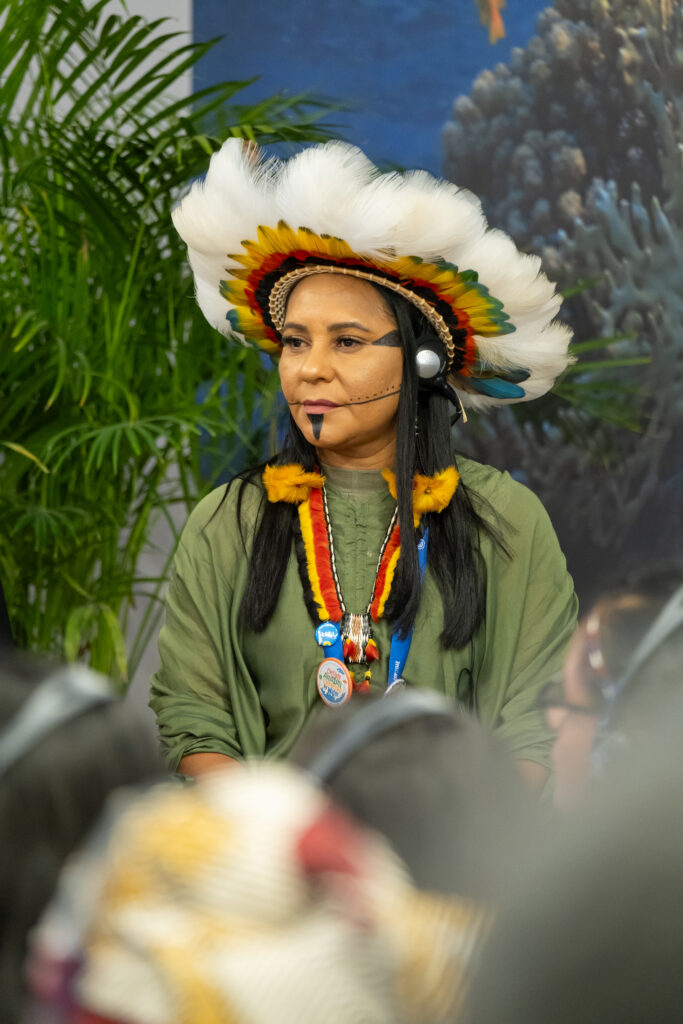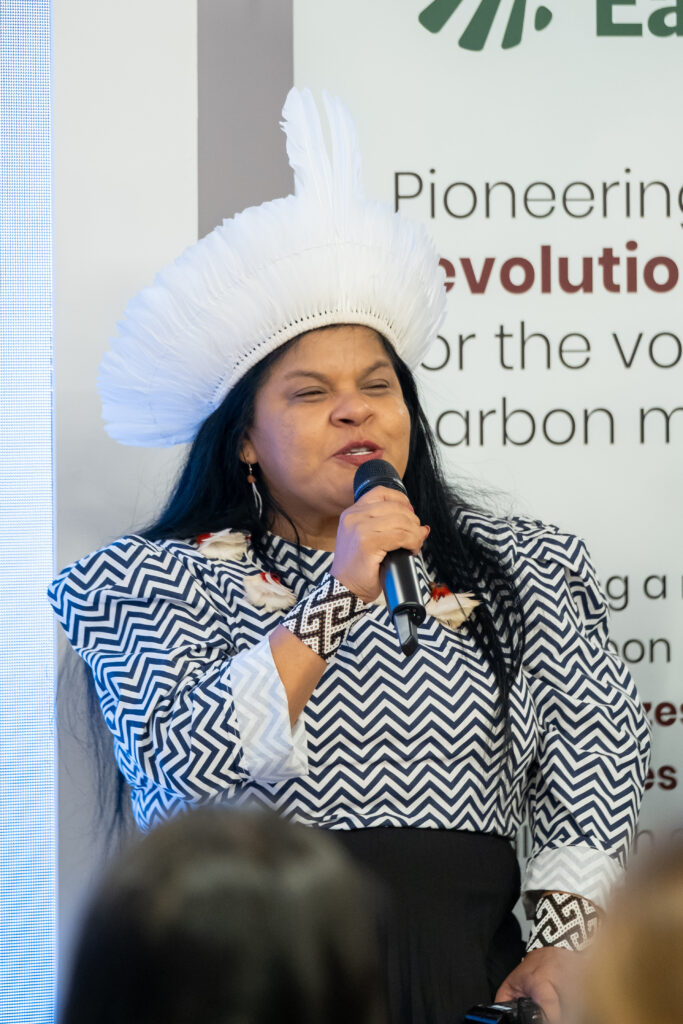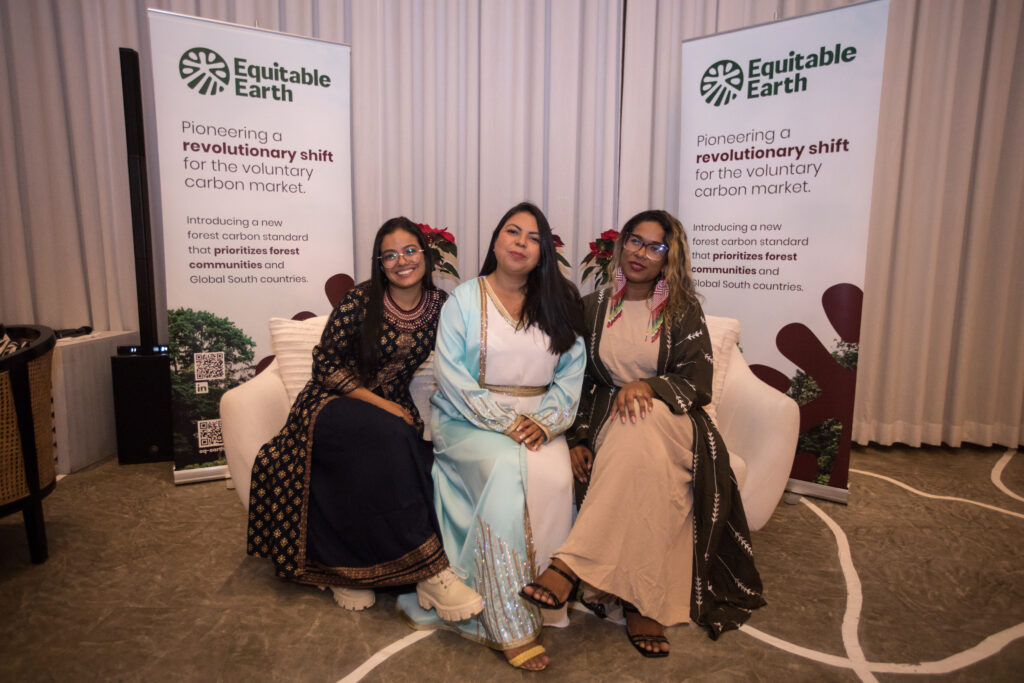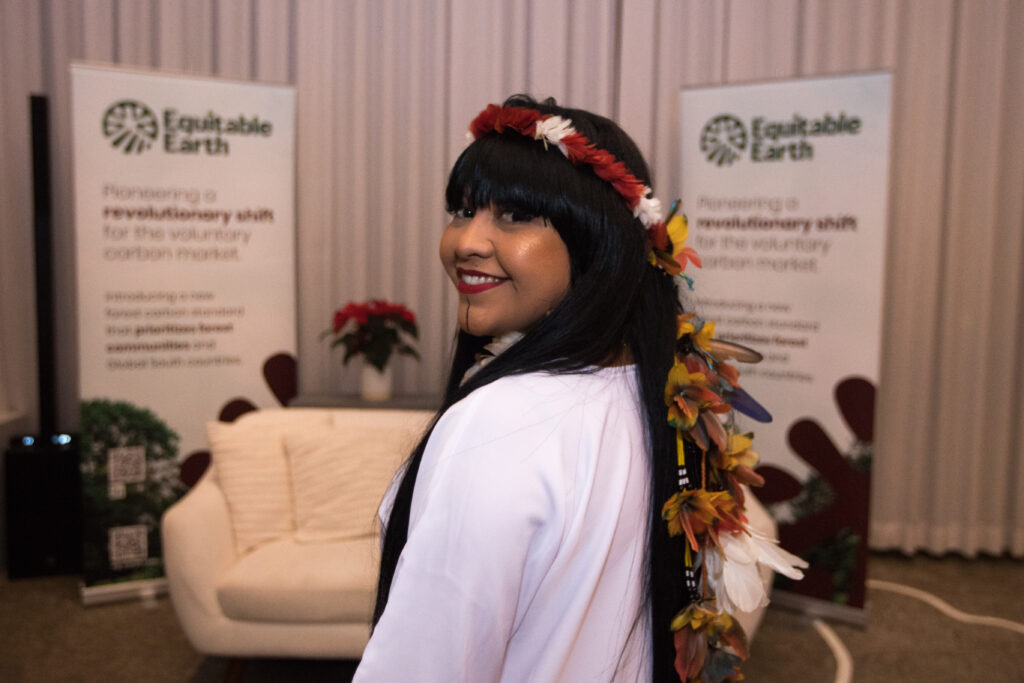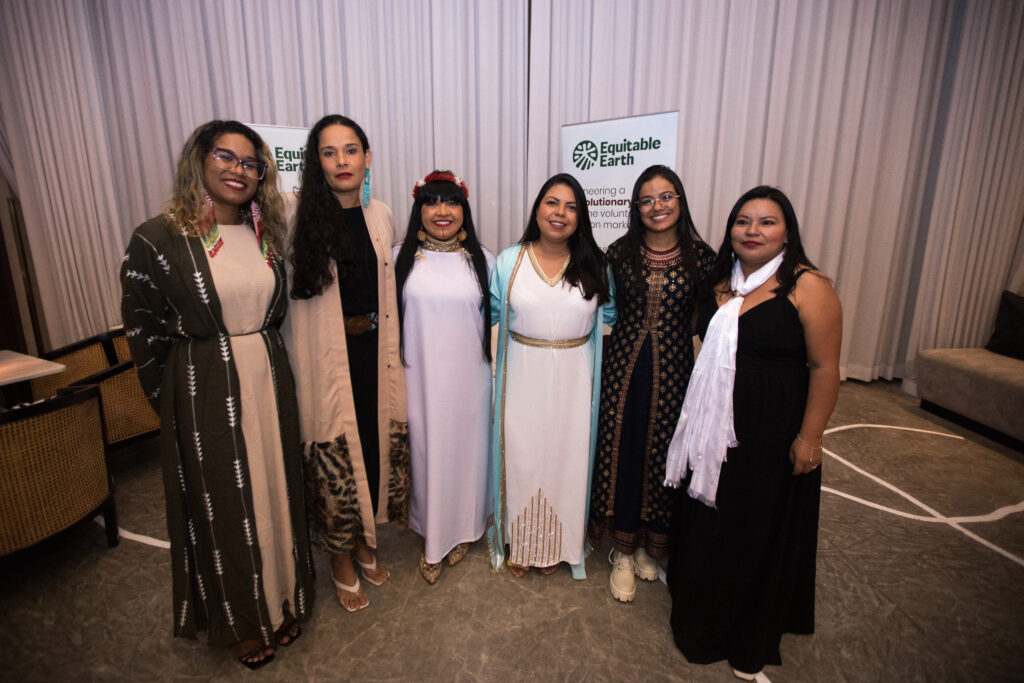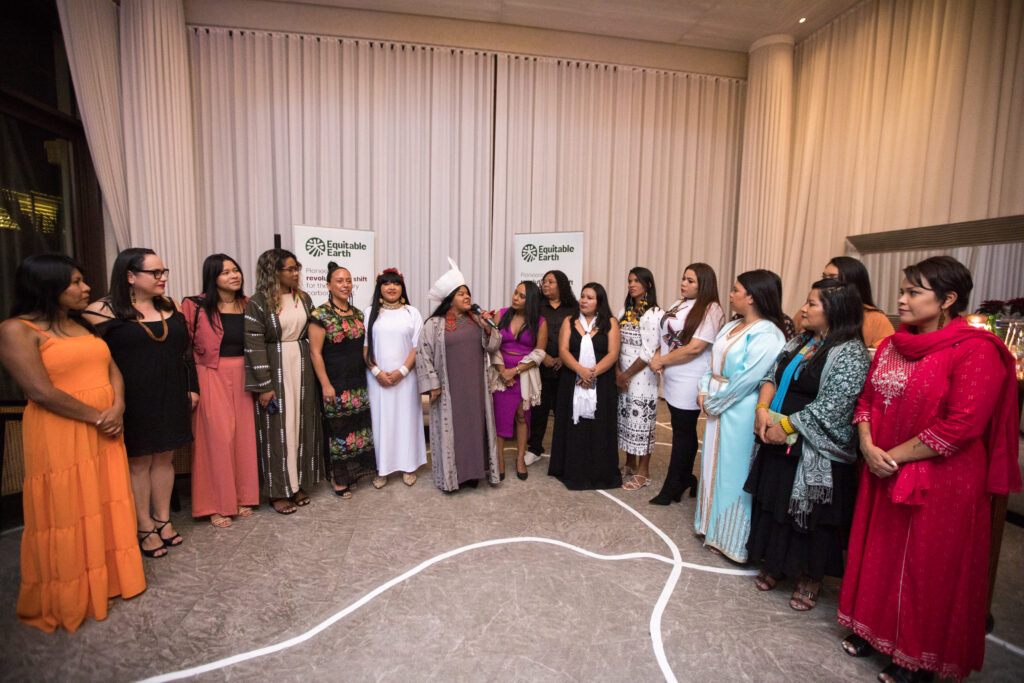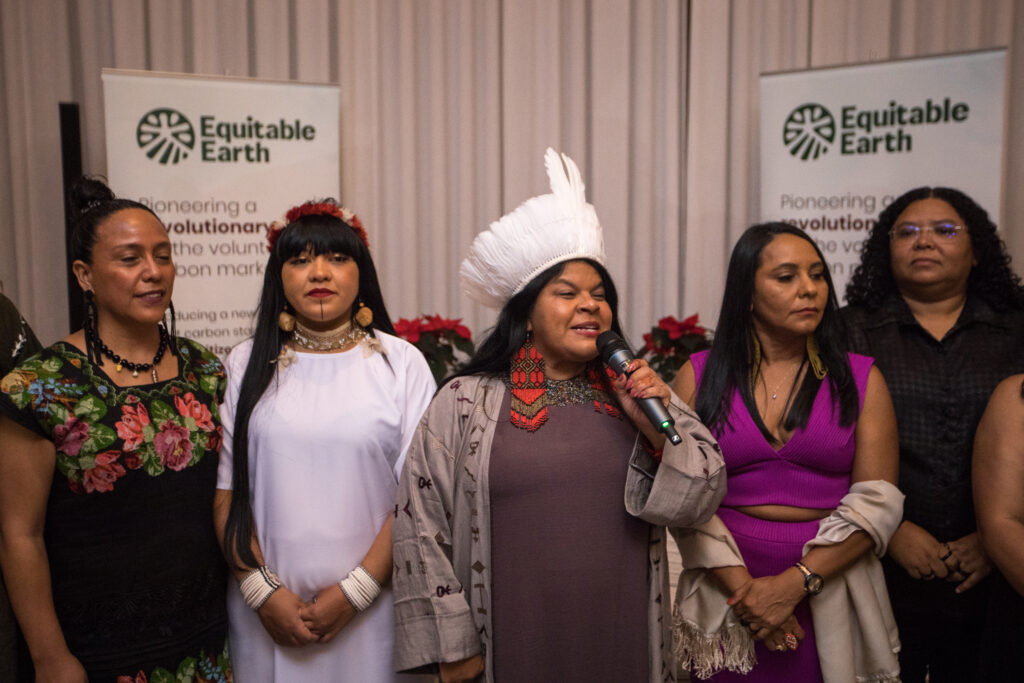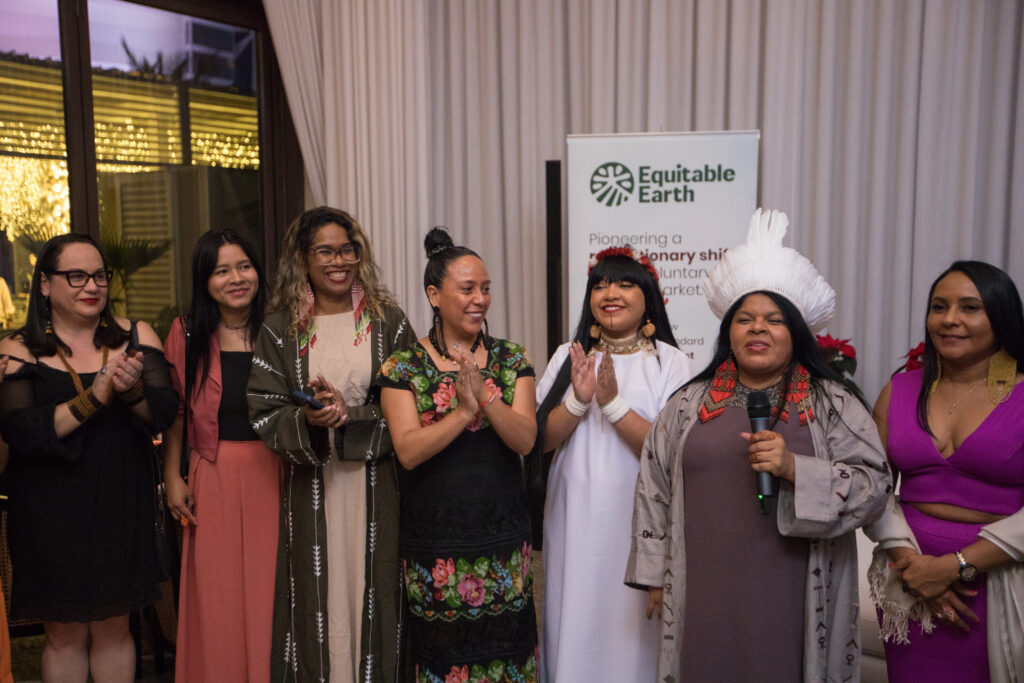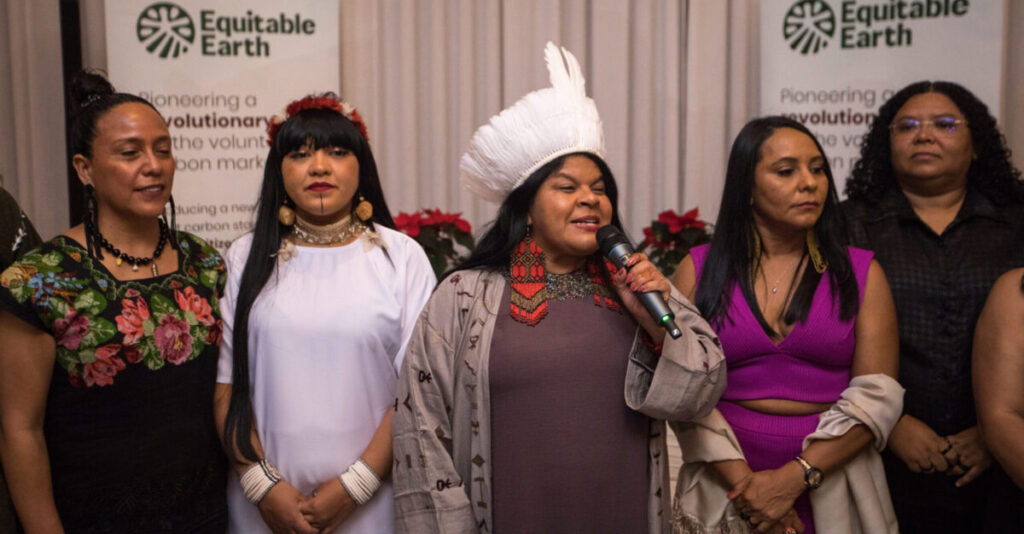
Equitable Earth sponsored the largest delegation of Brazilian Indigenous women to ever attend a United Nations Climate Change Conference
January 15, 2024 – The commanding presence of 25 Indigenous women leaders marked a historic occasion sponsored by Equitable Earth at COP28 in Dubai. This version of the annual UN Climate Change Conference had the largest attendance of Indigenous delegates of any COP (over 300 Indigenous People from all over the globe).
This group of women, backed by Equitable Earth, Forest Trends, and GreenData and predominantly made up of Brazilian Indigenous women, not only diversified global environmental dialogue but also assertively claimed a space for the voices of the communities often marginalized in climate and conservation discussions.
For decades, the global climate narrative has been dominated by hegemonic nations of the Global North, frequently overlooking the rights and voices of Indigenous Peoples. At this COP28, however, perspectives from Indigenous territories emerged as fundamental – providing crucial insights for developing effective strategies to combat climate change.
Equitable Earth was honored to fiscally sponsor the participation of 25 women from the National Association of Indigenous Women Warriors of Ancestry, (ANMIGA) a group of leaders from all over Brazil who work together to guarantee the rights and protect the lives of Indigenous Peoples. Our financial and logistical support of their work at COP28 ensured that their unique voices and experiences echoed in a global context on the stages and in the meetings at COP28 in Dubai.
Our sponsorship to ensure the inclusion of these women leaders and their bold efforts reflects Equitable Earth’s mission to pioneer a revolutionary shift for the voluntary carbon market that prioritizes forest communities and Global South Countries. We are committed to making the economics work first and foremost for the forest communities at the vanguard of conservation for climate action.
Sônia Guajajara, the first Indigenous woman to lead a federal government ministry in Brazil and head of Brazil’s Ministry of Indigenous People, highlighted the significance of this representation, underscoring the importance of having indigenous voices in government and of delivering climate finance directly to the communities that are most affected by climate change:
“It’s already proven that Indigenous Peoples and local communities are the best guardians of the forest. So it’s very important that climate finance and funds for conservation go directly to the Indigenous Peoples who are the best stewards of it.
“It’s too early to say whether or not we as IPLCs feel supported. We hope to see more commitments before COP30 so that we don’t reach the point of no return.”
Puyr Tembé, Secretary of Indigenous Peoples of the State of Pará, emphasized the preparation and crucial role of Indigenous women in environmental negotiations:
“There has to be a financing mechanism that considers gender, so that Indigenous women can come to events like this and be part of the negotiations. Usually we are just left to be listeners. We are here to understand what is possible and to defend what we believe.”
Silvinha Xukuru and Concita Sompré, respectively the cacicas (leader) of the Xukuru people and leader of FEPIPA, stressed the importance of respect for ancestors and commitment to future generations:
“We have ancestral knowledge. We take from Nature in a respectful way. Ours is not an economy that kills, it is not an economy that displaces people. I put myself here as a woman, a mother, a grandmother, to say stop killing us. We are asking for help. I face this with my companions – it doesn’t matter where she comes from – the pain unites us but bravery makes us continue forward.”
The discussions led by these leaders at COP28 covered topics ranging from the mental health of Indigenous youth to the fight against deforestation and gender violence, as well as focusing on the essential role of climate financing and the protection of cultural heritage.
Looking to the future, the participation of these women in COP28 is indicative of the protagonism they aspire to in future conferences. Equitable Earth, Forest Trends, and GreenData recognize the importance of this historic movement and reaffirm their commitment to the future of the planet and the journeys that Brazilian Indigenous women wish to chart.
This milestone in representation of Indigenous women represents not just a challenge to the status quo but also the building of a future where diversity of voices is crucial for the success of our collective fight against climate change.
The stories of these Brazilian Indigenous women is a prelude to a new era of Indigenous and female leadership in global environmental issues. Stay tuned for more great news coming soon from our network of leaders in climate action.
Below is a gallery of photographs from some of the events that this group of leaders participated in at COP28.
